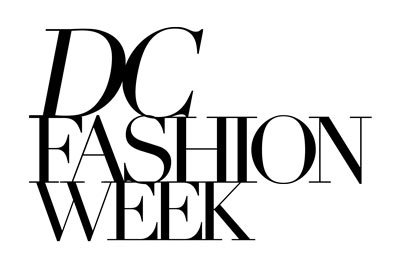The fashion and fashion retail industry is synonymous with creativity, innovation, and flair. But behind the glitz and glamor lies a workforce that keeps the industry running smoothly—from designers and merchandisers to retail staff on the shop floor. Attracting and retaining talent in such a fast-paced and competitive field requires more than just competitive salaries; it demands a robust and enticing employee perks program.
Fashion companies and retailers have recognized this need and developed perks that not only cater to their employees’ practical needs but also tap into the aspirational and creative nature of the industry. Here’s a look at how these perks are shaping the work experience in the fashion world.
Employee Discounts: The Crown Jewel of Fashion Perks
One of the most common and coveted perks in the fashion industry is generous employee discounts. Working in fashion means being surrounded by the latest trends and designs, and these discounts provide employees with direct access to the brand’s products at reduced prices.
- Retail Discounts: Many fashion retailers offer discounts ranging from 20% to 50% off their products. Some high-end brands extend these perks to include their family and friends, making it a desirable benefit for employees with a passion for fashion.
- Exclusive Sample Sales: Beyond standard discounts, employees often gain access to sample sales featuring one-of-a-kind pieces or last season’s collections at steeply discounted prices. This perk is especially popular in luxury fashion houses, where items may otherwise be out of reach for the average employee.
Professional Development and Career Growth Opportunities
Fashion is an industry that thrives on constant innovation, making skill development a priority. Leading fashion companies have embraced this by offering:
- Training Programs: From workshops on fabric technology to seminars on sustainability in fashion, employees have opportunities to stay updated on industry trends and best practices.
- Mentorship Initiatives: Many brands pair junior employees with experienced professionals, fostering a culture of knowledge sharing and career growth.
- Internal Mobility: Employees in retail roles are often given pathways to transition into corporate positions in merchandising, marketing, or design, allowing them to grow within the organization.
Wellness Programs: Looking Good, Feeling Good
The fast pace and long hours in fashion retail and design can take a toll on employees. To counteract this, companies are investing in wellness programs that emphasize physical and mental health.
- On-Site Wellness Services: Some larger companies provide yoga classes, fitness centers, or even meditation rooms within their offices or distribution centers.
- Mental Health Support: In response to the industry’s high-pressure environment, many brands have begun offering access to counseling services, mental health days, and employee assistance programs (EAPs).
- Flexible Scheduling: Fashion retailers, in particular, recognize the need for work-life balance, offering flexible shifts, job sharing, and paid time off to reduce burnout.
Fashion-Focused Perks
The unique nature of the fashion industry allows companies to offer perks that align closely with their brand identity and employees’ interests:
- Creative Freedom: Designers, stylists, and visual merchandisers are often given creative autonomy in their roles, which is both a perk and a motivator for individuals passionate about their craft.
- Runway Access: Employees at high-profile fashion houses may be invited to attend fashion shows or exclusive brand events, giving them insider access to the world they help create.
- Wardrobe Allowances: Some brands provide a yearly or seasonal stipend for employees to purchase clothing from their collections, ensuring that staff can represent the brand in style.
Sustainability and Purpose-Driven Benefits
As sustainability becomes a central focus in fashion, many companies are aligning their perks programs with environmentally and socially responsible values.
- Recycling and Resale Credits: Employees are encouraged to participate in clothing recycling initiatives or resale programs, often receiving incentives or discounts for doing so.
- Volunteer Opportunities: Brands with strong corporate social responsibility (CSR) programs offer paid time off for volunteering with environmental or community-focused organizations.
- Education on Sustainable Fashion: Employees are given access to resources and training on sustainable practices, reflecting the industry’s shift toward more eco-conscious operations.
Recognition and Rewards
In an industry driven by achievement and aesthetics, recognition plays a key role in motivating employees. Companies have developed programs to reward hard work and loyalty:
- Employee of the Month Awards: Retailers often highlight top-performing employees with monetary bonuses or public recognition.
- Service Anniversaries: Many brands celebrate work anniversaries with gifts, bonuses, or additional vacation days. A personalized award plaque is a popular way to commemorate milestones, offering a tangible and lasting symbol of appreciation.
- Performance-Based Incentives: Designers and sales staff may receive bonuses tied to meeting sales or creative goals, reinforcing the connection between effort and reward.
The Importance of Culture in Perks Programs
Beyond the tangible benefits, the culture of the workplace is a significant “perk” in the fashion industry. Brands that foster inclusivity, creativity, and collaboration create environments where employees feel valued and inspired. Open communication channels, diversity initiatives, and opportunities for idea-sharing all contribute to a positive workplace culture.
Employee perks programs in the fashion and fashion retail industry go beyond conventional benefits to reflect the dynamic and creative nature of the field. From deep discounts and career development opportunities to wellness programs and purpose-driven initiatives, these perks are designed to attract talent and foster loyalty.
For fashion enthusiasts, working in the industry isn’t just a job—it’s a lifestyle. And with perks that align with their passions and aspirations, employees find not just financial rewards but also a sense of belonging and purpose. As the industry continues to evolve, these perks will remain a vital part of what makes fashion a desirable and fulfilling career choice.
